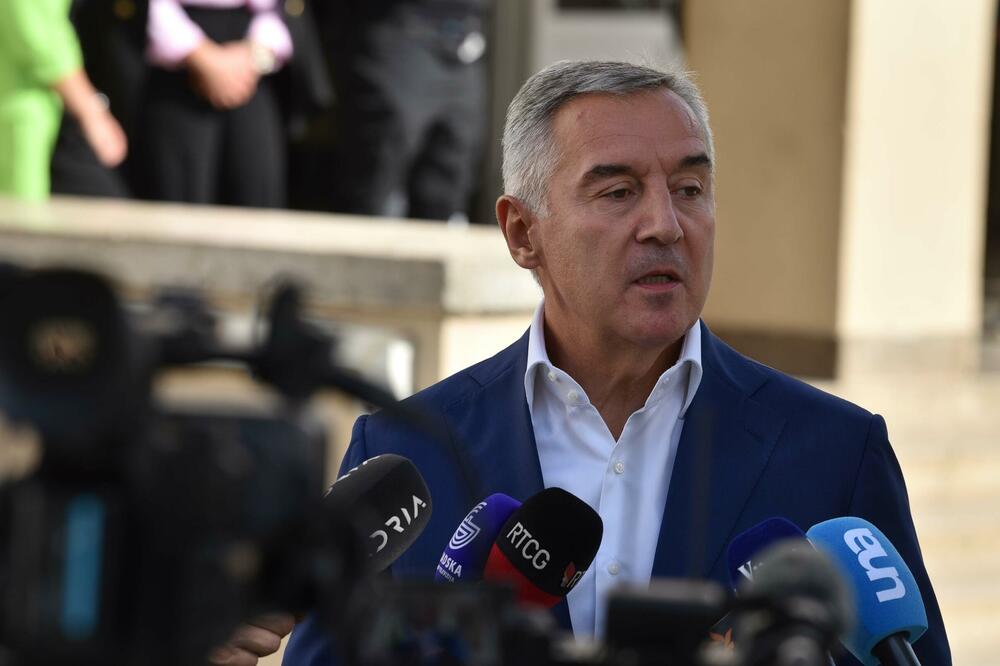It's not so much hate speech as it is weakness speech...
Perhaps you expect from a politician with so much experience to hear some smart, fresh remark, some meaningful political observation. The very fact that he is no longer in power should make his political judgments wiser and more universal. You expect some effect of maturity, if nothing else...
And about what Djukanovic the story? About revenge? He deals with the phenomenology of blood revenge, it seems to some that he is doing it as a sociologist and anthropologist - a modest researcher of Montenegrin society at the beginning of the 21st century. But to some it seems that he is doing it like a shaken don, who is trying to intimidate the public and appear more powerful than he really is.
That is why this is above all a speech of weakness...
And let's not pretend to be naive.
A revenge story is always a kind of threat. No matter how vague and nebulous such statements are, no matter how “polite” they are said, usually in the form of a warning, that's always it. A threat. Where the one who utters it appears at the same time as a wise man who warns with concern, and actually dictates the tone to the public... And publicly advocates revenge as a method.
I remember how an MP was publicly crucified somewhere before Ferhat Dinoša because in a parliamentary story, also "warning", he reminded of the so-called folk proverb - He who does not take revenge does not dedicate himself... It was careless, inappropriate for the place, but the public reaction was thunderous and unequivocal.
Đukanović's story seems infantile, points to a kind of political execution, and certainly contributes to the irrationalization of the public scene.
Of course, this applies equally to similar statements Mandica and other politicians, who, from their epic worldview, are surprisingly often prone to similar "concerns" and such "disguised" threats. And it is unlikely that anything will change. No one came back smarter from a military exercise...
But this kind of irrationalization of the scene has nothing to do with the nation, you see how in that kind of primitivism the "chosen" Montenegrins and Albanians and Serbs agree... How that social logic from the Neolithic suddenly connects them. Almost touching.
However, what is unusual about it?
Even though they are defending him, Đukanović works thoroughly against his own party with this kind of performance.
If behind you are real ideas, valuable and important for the community (it is natural for them to believe this in a party voted for by a quarter of the country and which declaratively represents European values), then the rationalization of the political scene does not suit you at all. In that case, you need voters as rational as possible. Why then such intense irrationalization of public discourse?
The reason, of course, is not the well-being of the party, but of the former and current Boss. In other words, in order to keep the praetorians around him, in order to maintain the appearance of a "monolith" on his side, Đukanović will set back the DPS even more.
"He who exults over handcuffs is wrong," says Đukanović.
I agree, but... It would be good to know if he ever thought that when he was arrested and his media and analysts were "gloating over the handcuffs". Because only in that case is this sentence meaningful and "universally moral". Come on, but what do you think? Does Đukanović inherit the idea of universal morality?
The "young lions" are intelligently trying to defend it, and how could they do otherwise - when it is actually indefensible... So, the matter must be relativized. How? Đukanović and the categorical imperative? He will find me.
And that's actually what accuses him the most, a crucial detail - while he had all the power in the world, he didn't bother much with universal ethical laws.
If he had really been able to think in a universally moral way at the time of his greatest power, he would not be in the situation he is in today.
Nor would Montenegro look like it does today.
Bonus video:





